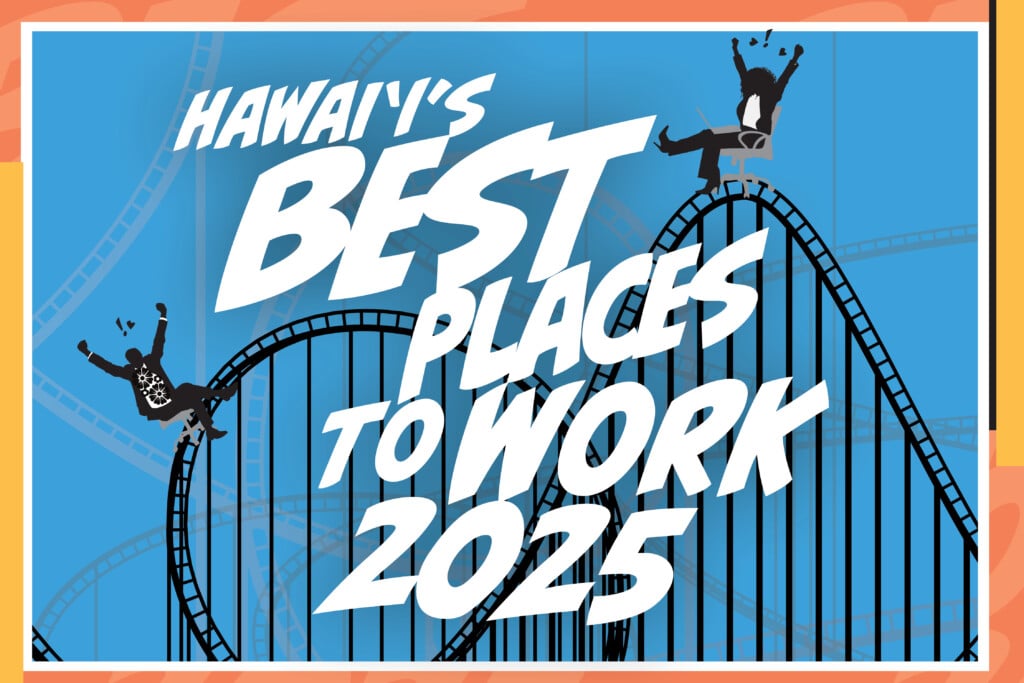The Careerist: The Strange Case of the Disappearing Boss

Q: My current boss has this persistent habit of disappearing during the few days before a big deadline, leaving us worker bees to do all the work and (of course) take all the blame. If the project goes well, he happily reappears and takes all the glory. We’ve taken our concern to his boss, who shrugged it off, which leaves us toiling and complaining and seething. Any suggestions or are we simply doomed?
A: Bosses like yours always remind me of cockroaches: scurrying away from the white-hot lights and then sauntering back in like they own the place to enjoy the feast. I took your question to one of Hawaii’s most seasoned HR professionals, Stevette Santiago at Y. Hata & Co., because I knew she’d know how to cut through this nonsense. I was right.
“Going to the boss and the boss’ boss are the right things to do,” she says, before suggesting that you also follow other formal channels like human resources or others within senior management. “When that doesn’t work, you’re kind of stuck,” she acknowledges, followed by a long pause that suggests I get my pen poised to write fast.
“Toot your own horn!” she says. “Get it out there, showcasing your work independently to the right stakeholders and senior management.” She points out that it’s your job to create opportunity to build a following within your workplace, and that, if you’re good at your job (and you know you are!), you should be confident in your resume equity and your ability to deliver the goods. “In other words,” she says, “there should be a lot of folks in the cc line.”
People like working with people who are good at their job, and soon enough, word will spread that you’re not only good, but you’re not going to be pushed around. It’s tough out there and, as Santiago says, “Sometimes you’ve got to put up or shut up.”
Could it backfire? Possibly, but is that so awful? In the worst case, you’re pretty much right back where you started, with a boss who takes advantage of your hard work and steals all your thunder. At that point, Santiago suggests looking at your resume equity and your fit within the organization. “Ask yourself, ‘Does this place align with my personal dynamic and career goals? What does this company stand for and does it align with my values?’ ” she says.
Too often we seem to think of the employment relationship as a one-way street: They’re the bosses and we’re the grunts. Santiago is quick to turn that on its head, pointing out that talented employees are pure gold to a company and if you’re not being valued, find a place where you are. “We get it over here at Y. Hata,” she laughs. “Come on over!”
Q: I’ve got people in my office playing really good music, but I’m trying to get some damn work done. It’s like someone giving me mind candy and then expecting me to not be distracted. I love the beat, but can they take it outside?
A: When a tune gets stuck in your head, is it agony or ecstasy? Remember Culture Club’s “Karma Chameleon?” It’s my go-to, sing-in-the-car, happy-dance tune, forcing my three kids to immediately clap their hands to the sides of their heads and hum loudly, a personal ritual to keep my happy-dance earworm from overtaking their brains. As Boy George says in that catchy little number, “Every day is like survival.”
Music in the workplace has been a thing since the 1930s, when a little company in South Carolina, Musak, impressed factory owners with its research that the right collection of tunes could improve productivity – forever changing our elevator and on-hold experience. In 1940, BBC Radio launched its popular “Music While You Work” program, which ran twice daily for close to 30 years. Pulling from a range of genres, the program hit a glitch when it learned that the tune “Deep in the Heart of Texas” caused workers to join in the hand-clapping refrain, creating chaos on the factory lines.
With the advent of the Walkman in 1979, followed by the iPod in 2001, most workplace music migrated to headphones, leaving workers bopping in relative workplace silence. As we reported in the January Careerist, these headphones are practically standard-issue-equipment in bullpen-style offices, with new rules of etiquette for knowing when to interrupt a colleague and when to steer clear.
The scant research on the value of music at work is decidedly mixed and dependent on what type of work you do. Surgeons are known for their reliance on music in the operating room, a strategy an American Medical Association study found positive, since surgeons report being more relaxed and focused with their music choice playing in the background. Anesthesiologists and nurses, however, report the opposite – that the music can be distracting to their work, which requires more in-the-moment decision-making and action.
But I digress. Your problem isn’t the hand-clappers on the factory line or the doctor/nurse clash in the operating room, but rather the rapper two desks down. If you work in an environment where headphones aren’t an option – such as a construction site, where warning sounds must be heard – you’ve got a problem.
Obviously, your first course of action is old-fashioned: Ask the offender to turn it down. If that doesn’t work, take your case to human resources. At a minimum, the music is impeding your productivity and that trumps the music lover’s aesthetic preferences. HR has reason to take your complaint seriously. A few years ago, a California company came under legal fire when an employee argued that a colleague’s loud rap music, including racially charged language, created a hostile work environment. The company’s poor handling of the situation cost them a cool $168,000 settlement and a black eye that they condoned the actions of the music lover over the complaints of the employee. Take it from Boy George, “Every day is like survival.”
Ask The Careerist
Have a question about work, life and that place in the middle where it all gets tangled up? Ask me at: feedback@hawaiibusiness.com






